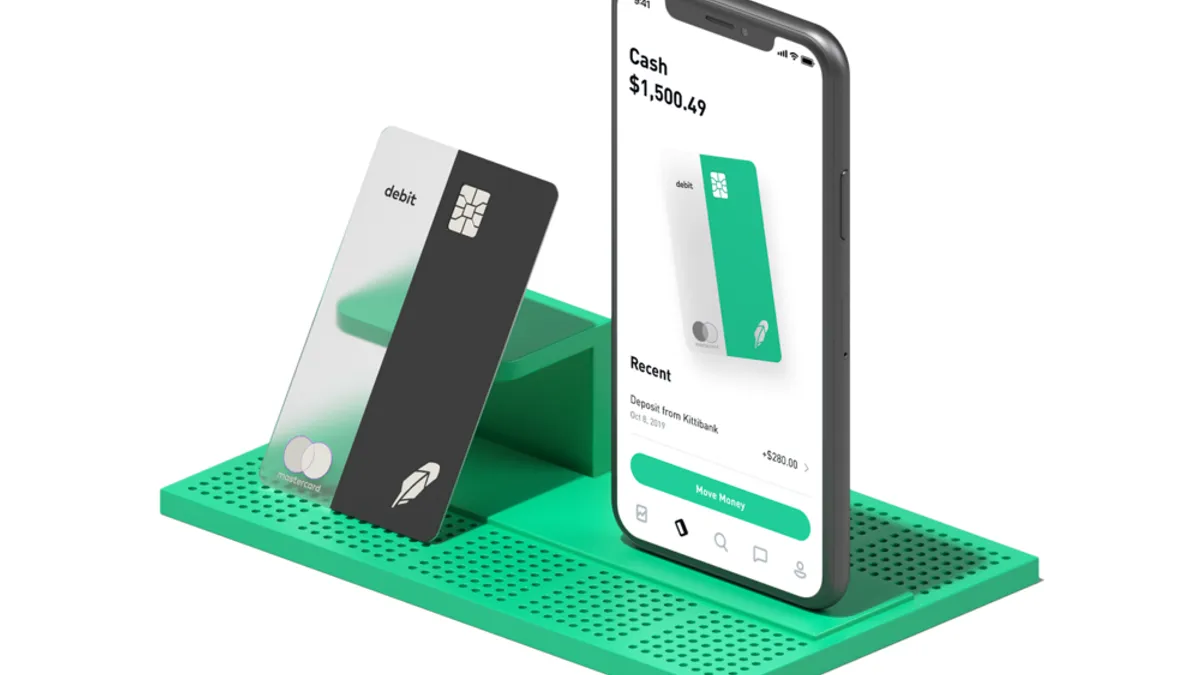Robinhood is making a second play to expand into the U.K.
Nearly two years after the stock-trading app indefinitely postponed its launch in the country, the company announced Tuesday it would acquire Ziglu, a U.K.-based crypto and payments company. Terms of the deal were not disclosed.
"Ziglu and Robinhood share a common set of goals, working to reduce the barriers to entry for a new generation of investors, and we’re excited to pursue that mission together," Mark Hipperson, Ziglu’s CEO, said in a statement included in a Tuesday post on Robinhood’s blog.
Hipperson is no stranger to the challenger bank space. He was a founder and early chief technology officer for London-based Starling.
Ziglu allows U.K.-based customers to buy and sell 11 cryptocurrencies, earn a yield through its Boost products, pay using a debit card, and move money across borders without fees, according to Tuesday’s post.
Robinhood said it wants to use the purchase to open its crypto platform to international customers and accelerate an expansion across Europe.
"Together with the Ziglu team, we’ll work to leverage the best of both companies, exploring new ways to innovate and break down barriers for customers across the UK and Europe," Robinhood CEO Vlad Tenev said Tuesday.
In Ziglu, Robinhood buys a crypto outlet that has already gained approval from the U.K.’s Financial Conduct Authority (FCA), a relative rarity. Just 33 of the more than 100 crypto companies that have applied since early last year have gotten the FCA’s green light, the Financial Times reported, and the regulator has paused work relating to new applications to focus attention on a backlog.
Robinhood has regularly run afoul of regulators in the U.S. It paid the Financial Industry Regulatory Authority (FINRA) nearly $70 million last year to settle allegations it misled customers, approved ineligible traders for risky transaction types, and failed to adequately supervise technology that left customers locked out of the platform during high-demand periods.
It also agreed to pay $65 million to the Securities and Exchange Commission (SEC) in late 2020 to settle charges that it failed to disclose the role of payment for order flow in its process. Massachusetts securities regulators filed a complaint against the company that same week, citing "aggressive tactics to attract inexperienced investors, its use of gamification strategies to manipulate customers, and its failure to prevent frequent outages and disruptions on its trading platform." The company has since jettisoned the confetti displays that once accompanied user accomplishments such as first trades.
Despite the bruises to its reputation, it drew 3 million new customers during the quarter the COVID-19 pandemic began and saw such a spike in business during the early 2021 meme-stock frenzy, it had to temporarily restrict trading and ask its shareholders for billions of dollars, which it gave to the stock market's central clearing hub as collateral.
Robinhood filed for an initial public offering in July 2021, but its stock price has lost 71% of its value since then, according to Bloomberg.
The company had planned to make its app available to U.K. users by the end of 2020 but closed a waitlist that July that had attracted about 250,000 signups over eight months.
"We’ve come to recognise that our efforts are currently best spent on strengthening our core business in the US and making further investments in our foundational systems," the company wrote to prospective British customers in an email at the time.
Robinhood pulled its banking charter application with the Office of the Comptroller of the Currency (OCC) in December 2019.














